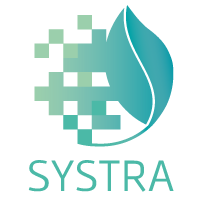The role of quality infrastructure for socio-technical transformation
Sectors like energy, water supply, or transportation can be conceptualized as socio-technical systems. They consists of (networks of) actors (individuals, firms, and other organizations, collective actors) and institutions (societal and technical norms, regulations, standards of good practice), as well as material artifacts and knowledge.
Whereas previous research has focused mainly on actors, the role of institutions in general and in particular the differentiation between regulations and standards has been in general neglected in the literature on socio-technical systems. Following the Porter Hypothesis, there has been several studies investigating the impact of in particular environmental regulations on innovation. Meanwhile, the relevance of regulations for innovation in various areas has been acknowledged. The role of standards for innovation has only recently been moved in the focus of research. Approaches to disentangle the difference between regulation and standards are at the very early stage of research. Finally, analyses of the comprehensive impact of quality infrastructure, i.e. standards, certification, accreditation, metrology, regulations and market surveillance, on innovation, but also on the transition of socio-technical systems are almost completely missing as well as a link to other types of STI policies.
Based on this background, the following research questions require profound answers:
1) What role do play regulation and standards for the transition of socio-technical systems in the literature?
2) What role does quality infrastructure currently play in areas like the bioeconomy, circular economy, water, hydrogen or cybersecurity, but also mission-oriented STI policies?
3) Which are success factors and barriers, which have to be taken into account in setting up quality infrastructures in emerging socio-technical systems?
4) What are the interfaces between quality infrastructure and other STI policies?
In this project, we will take the freedom to look at a couple of foundational theories, before deciding which one to apply for our research. We believe that several theories can be insightful, e.g. institutional theory, transaction costs, principal agent theory, signaling theories, market and system failures, but also government failure theories.
We expect to expand the academic debate on the link between regulation and innovation by explicitly considering not only standardization, but also certification, accreditation, metrology and market surveillance, i.e. all components on quality infrastructure, based on economic and political science approaches enriched by our knowledge from applied research.

